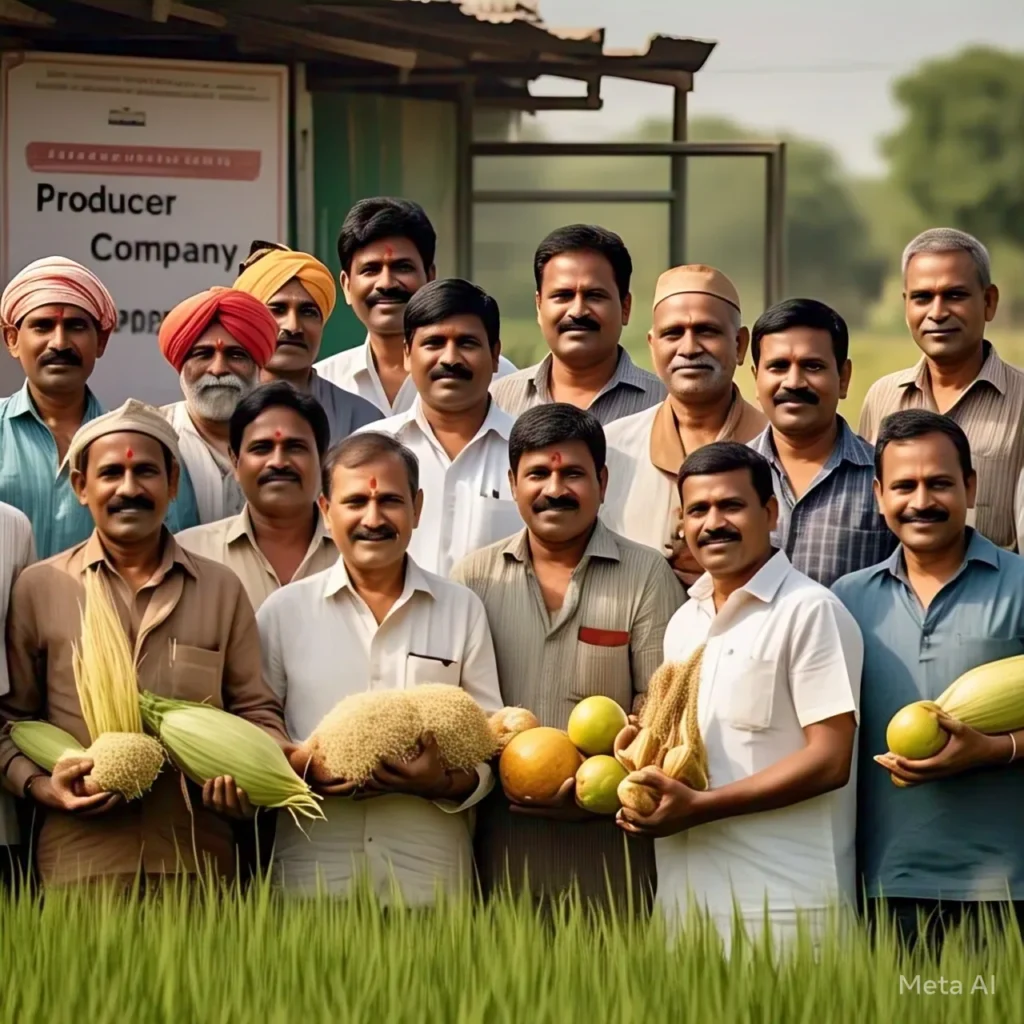
PRODUCER COMPANY
A Producer Company, formed by farmers, blends private limited company and cooperative benefits. Registered under the Companies Act, 2013, it ensures democratic decisions, equal member rights, boosts market access, resource management, and promotes sustainable agricultural growth and profitability.
₹ 9000/- ₹ 15000 40% Off (Excluding Government Fees)

Documents Required
- Aadhar Card of all directors
- Pan card of all directors
- Latest Bank statement of all directors
- Passport photo of all directors
- Rent agreement
- Mobile number and email id of company
- Mobile number and email id of all directors
- Digital signature (DSC) of all directors
- Farmers certificate
Producer Company Details
Advantages of a Producer Company
Establishing a Producer Company or Farmer Producer Company offers several benefits, making it an ideal business structure for primary producers. Key advantages include:
1. Hybrid Business Model
A Producer Company integrates the professional management of a Private Limited Company with the cooperative principles of a Cooperative Society, offering the best of both structures.
2. Exclusive Ownership by Primary Producers
Only primary producers or Producer Institutions can own and be members of a Producer Company. This ensures that control remains with those directly involved in farming or production. Additionally, member equity cannot be traded, protecting the company from takeovers or external exploitation.
3. Structured Governance & Professional Management
While functioning under the Companies Act, 2013, a Producer Company follows specific regulations outlined in Sections 581A to 581ZL, ensuring a governance framework tailored to the needs of farmers and primary producers.
4. Limited Liability Protection
Members’ financial liability is limited to their shareholding, meaning personal assets remain protected from company debts or financial risks.
5. Affordable Capital Requirements
A Producer Company requires:
- A minimum paid-up capital of ₹1 lakh
- A minimum authorized capital of ₹5 lakh
This makes it easier for small groups of farmers or producers to raise capital and establish their business.
6. Flexible Membership
A minimum of 10 producers is required to start a Producer Company, with no cap on the maximum number of members, making it an inclusive and scalable business model.
7. No Government or Private Equity Control
Producer Companies cannot have government or private equity stakes, ensuring full autonomy and independence from external influences.
8. Nationwide Operations
Unlike cooperatives, a Producer Company can operate across India, providing unrestricted opportunities for growth, expansion, and business development.
Frequently Asked Questions (FAQs) on Producer Company
A Producer Company is a legally registered entity formed by farmers or agriculturists to improve their financial stability, business operations, and livelihoods. It combines elements of both a Private Limited Company and a Cooperative Society, ensuring democratic decision-making while maintaining professional governance.
Only primary producers (such as farmers, dairy producers, fishermen, weavers, and other agricultural-related businesses) or Producer Institutions can be members of a Producer Company.
A Producer Company requires a minimum paid-up capital of ₹1 lakh and a minimum authorized capital of ₹5 lakh.
A minimum of 10 producers (individuals or institutions) is required to form a Producer Company. There is no upper limit on the number of members.
Some of the main advantages include:
- Limited liability protection for members
- No government or private equity control
- Professional governance structure
- Nationwide operational scope
Access to financial assistance and government schemes
No, a Producer Company cannot have government or private equity investments. Only members (primary producers) can hold shares in the company.
A Producer Company is taxed similarly to a Private Limited Company under the Income Tax Act, 1961. However, certain agricultural income may be exempt from tax, depending on the nature of operations.
Yes, a Producer Company can apply for loans from banks, financial institutions, and government schemes. It can also receive grants and subsidies from various government programs aimed at supporting agricultural businesses.
Similar Services
Secure funding, streamline operations, and navigate risks with our proven strategies for early-stage success.
Partnership Firm
A partnership firm is a business entity formed by an agreement between two or more individuals (partners) to run a business and share profits or losses. Unlike a private limited company, it doesn't have a separate legal identity from its owners.
₹ 5200/- ₹ 8000 35% Off
(Excluding Government Fees)
One Person Company
A One Person Company (OPC) is a type of company structure in India designed for entrepreneurs who want to operate a business with limited liability but as a single owner.
₹ 6000/- ₹ 10000 40% Off
(Excluding Government Fees)
Section 8 Company
A Section 8 company, also known as a Section 8 Company under the Companies Act, 2013, is a type of legal entity registered in India specifically for non-profit purposes.
₹ 6000/- ₹ 10000 40% Off
(Excluding Government Fees)
Private Limited Company
A private limited company (Pvt Ltd company) is a type of business structure that offers several advantages to entrepreneurs, especially those running small and medium-sized businesses (SMBs).
₹ 6000/- ₹ 10000 40% Off
(Excluding Government Fees)
Still in doubt?
We are here for you, don’t let finances hold you back. Our expert team is here to fuel your growth with tailored financial solutions. Let’s chart your course to success.




